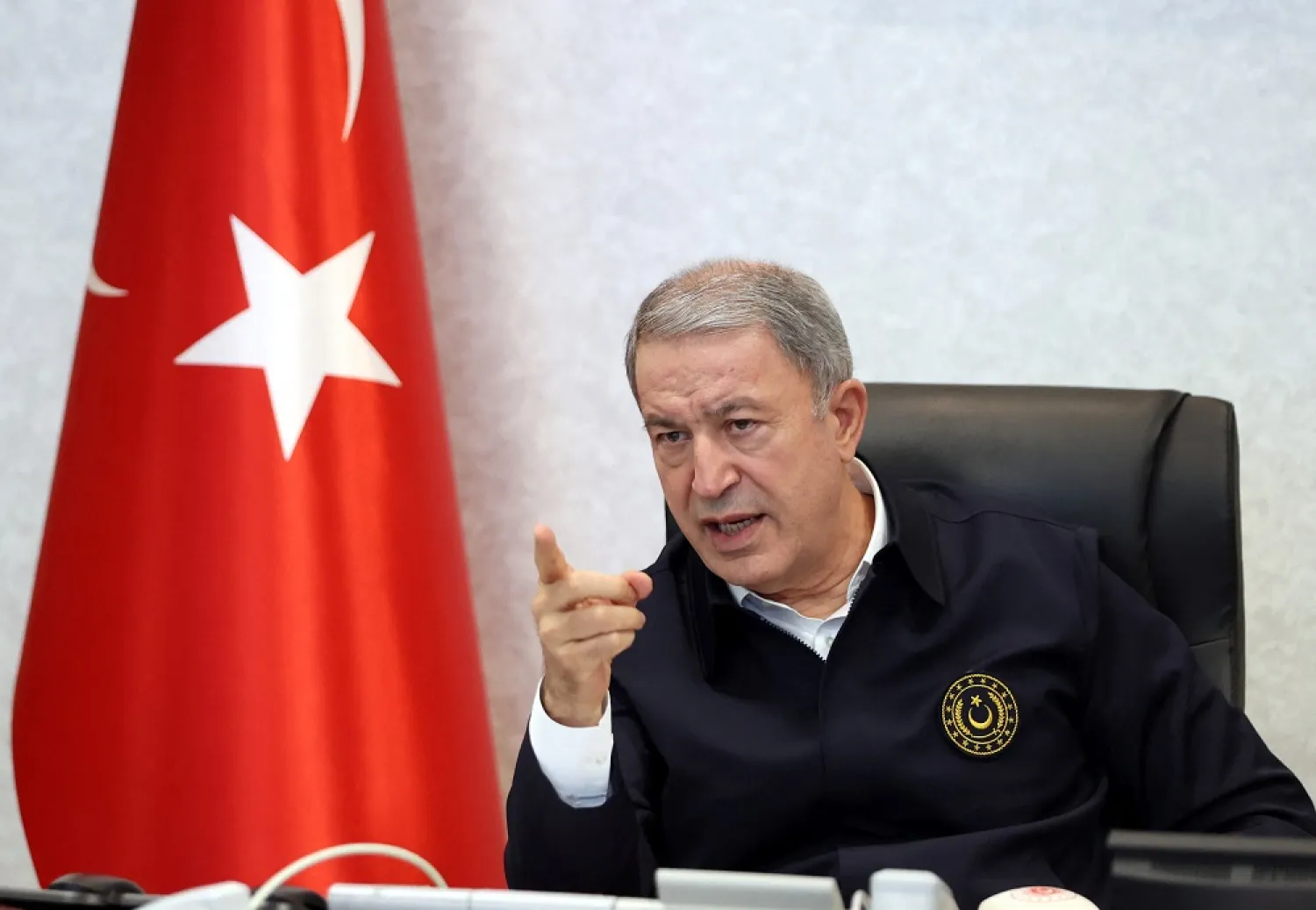Türkiye’s defense minister said Wednesday that Turkish and Russian troops could “expand” their joint patrols in northern Syria as part of efforts to bring security to the region.
Hulusi Akar did not elaborate on the plans, which come days after he held talks with his Syrian and Russian counterparts in a surprise meeting in Moscow.
Akar’s talks with Syria’s Mahmoud Abbas marked the first ministerial level meeting between Türkiye and Syria since relations broke down with the start of the Syrian war more than 11 years ago.
“We can expand the joint patrols with Russia in (the) north of Syria,” Akar told a group of reporters when asked about his discussions in Moscow, according to a defense ministry statement.
More talks between Russian, Syrian and Turkish officials would follow, Akar said, adding: “our hope is that this process will continue in a reasonable, logical and successful manner, and the fight against terrorism will be successful.”
Türkiye has been threatening to carry out a new military offensive into Syria against Kurdish militants it has blamed for a deadly Nov. 13 bomb attack in Istanbul.
Moscow, which has been pressing for a reconciliation between Ankara and Damascus, has made clear that it opposes a new Turkish invasion. It was not immediately clear whether Russia may have proposed expanded joint patrols between Turkish and Russian forces to avert a new incursion.
Türkiye and Syria have been standing on opposing sides of the Syrian conflict, with Türkiye backing opposition groups trying to oust Syrian President Bashar al-Assad. Damascus for its part, has denounced Türkiye’s hold over stretches of territory in northern Syria which were seized in a series of military incursions since 2016 to drive away Kurdish militant groups.
Türkiye and Russia started joint patrols in March 2020 after a cease-fire was reached earlier that month ending a Russian-backed government offensive on the last opposition stronghold in the northwest.









